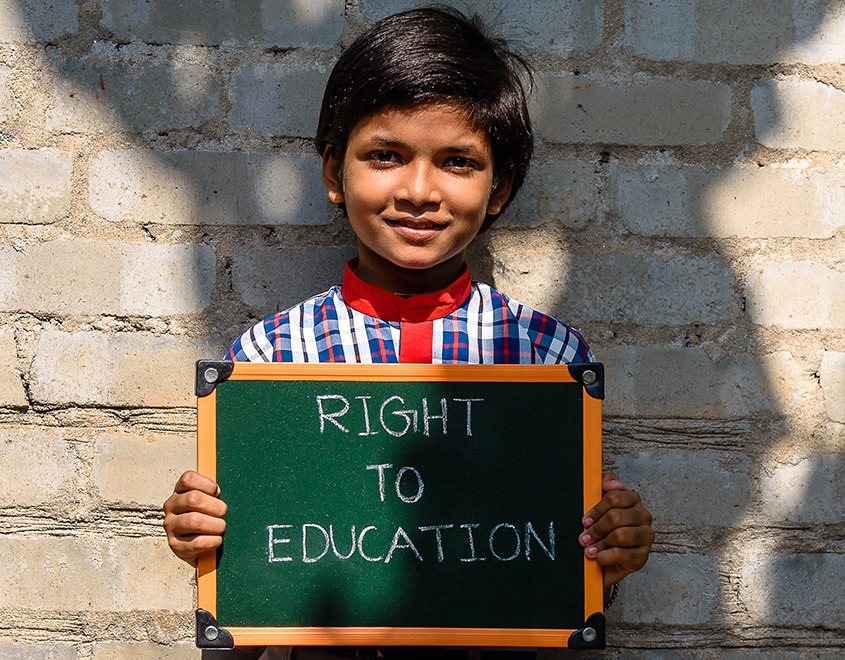Introduction
The Right of Children to Free and Compulsory Education Act, 2009 was enacted to provide free and mandatory education for children ages 6 to 14. Its main aim is to provide elementary education to every child as a fundamental right under Article 21A of the Indian constitution. Recently the apex court bench questioned the validity of the Pramati Educational and Cultural Trust case held in 2014. The Supreme court on 01 September, 2025 called for a reconsideration of its 2014 constitution bench judgment granting them blanket exemption from the applicability of the law, saying “it seems unavoidable”.
Background
The issue lies between the two key constitutional provisions of the Indian Constitution, firstly Article 21A. Article 21A was introduced through the 86th amendment in 2002. Which talks about free and compulsory education as a fundamental right for all children between the ages of 6 and 14. To enforce Article 21A, the Indian parliament came up with the RTE Act in 2009. Another important provision is section 12(1)(c), which says 25% of seats are reserved for the children of weak and disadvantaged families in the elementary classes of all non-aided and non-minority private schools. Where, on the other hand, Article 30(1) of the Constitution gives religious and linguistic minorities the fundamental right to establish and administer educational institutions of their choice. This provision was intended to protect all the cultural and educational autonomy of minority communities.
The conflict arose when the applicability of the RTE Act and the 25% reservation policy of minority schools was challenged. In 2014, the judgment of the Pramati case, a five-judge Constitution bench of the Supreme Court held that the RTE Act was not applicable and was unconstitutional for minority educational institutions, whether they were aided or unaided.
Key points
A bench comprising justices Dipankar Datta and Manmohan, the bench articulated several critical observations.
- Constitutional conflict: The issue arises between Article 21A, the right of children to free and compulsory education, and Article 30(1), the right of minorities to establish and administer educational institutions.
- RTE Act, 2009: The main aim is to provide every child aged 6–14 with free and quality compulsory education. Section 12(1)(c) of this Act says there is a 25% reservation in private schools for children from weaker sections and norms regarding infrastructure, teachers, and student welfare.
- Violation of the Right to Education (Article 21A): the fundamental right to education guaranteed under Article 21A of the Constitution to every minority student Article 21A guarantees that education provided by the state to children in the specified age group should be free of charge. This creates a situation where the children from minor schools may not get the equality, quality of education and other facilities which other non-minority school children are getting
- Lack of Uniform Standards: The exemption has resulted in a lack of uniform standards for teacher qualifications and infrastructure in minority schools, potentially compromising the quality of education imparted.
Recent Development
by Supreme Court On September 01, 2025, the bench of judges has referred the matter for the reconsideration to the chief justice of India. The court has also framed some legal questions to be examined, such as whether the ruling held in the case was correctly decided and whether the constitutional provisions of RTE infringe under Article 30.
If the supreme court overturns its previous decision. It would mean that all the minority schools, both aided and unaided will have to comply with the provisions of RTE Act, including the 25% reservation for EWS students and adherence to prescribed norms and standards for infrastructure and qualification. The outcome will be the far-reaching consequences. It will protect the fundamental rights of the minority committees.
Conclusion
The Supreme courts revisited decision to revisit the exemption granted to minority schools from the RTE Act marks a crucial importance in the implementation of the right to education in India. This reconsideration of the Pramati case showing the major concern related to the minority schools. the court observation reflects that the blanket exemption undermining the very principles of equality and equal education to every minor student that the RTE Act seeks to uphold. The final verdict will redefine the obligations of minority educational institutions and shape the future of elementary education and provide equal education to everyone in the country.
“PRIME LEGAL is a full-service law firm that has won a National Award and has more than 20 years of experience in an array of sectors and practice areas. Prime legal falls into the category of best law firm, best lawyer, best family lawyer, best divorce lawyer, best divorce law firm, best criminal lawyer, best criminal law firm, best consumer lawyer, best civil lawyer.”
WRITTEN BY Manisha Kunwar


